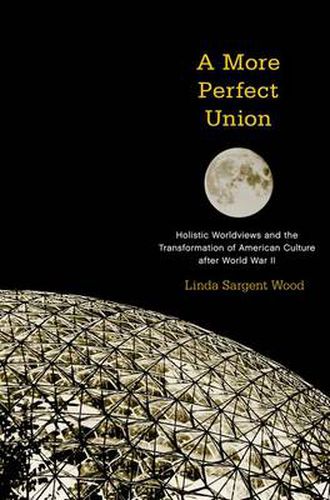Readings Newsletter
Become a Readings Member to make your shopping experience even easier.
Sign in or sign up for free!
You’re not far away from qualifying for FREE standard shipping within Australia
You’ve qualified for FREE standard shipping within Australia
The cart is loading…






In 1962, when the Cold War threatened to ignite in the Cuban Missile Crisis, when more nuclear test bombs were detonated than in any other year in history, Rachel Carson released her own bombshell, Silent Spring, to challenge society’s use of pesticides. To counter the use of chemicals–and bombs–the naturalist articulated a holistic vision. She wrote about a web of life that connected humans to the world around them and argued that actions taken in one place had consequences elsewhere. Thousands accepted her message, joined environmental groups, flocked to Earth Day celebrations, and lobbied for legislative regulation. Carson was not the only intellectual to offer holistic answers to society’s problems. This book uncovers a sensibility in post-World War II American culture that both tested the logic of the Cold War and fed some of the twentieth century’s most powerful social movements, from civil rights to environmentalism to the counterculture. The study examines important leaders and institutions that embraced and put into practice a holistic vision for a peaceful, healthful, and just world: nature writer Rachel Carson, structural engineer R. Buckminster Fuller, civil rights leader Martin Luther King Jr., Jesuit priest and paleontologist Pierre Teilhard de Chardin, humanistic psychologist Abraham Maslow, and the Esalen Institute and its founders, Michael Murphy and Dick Price. Each looked to whole systems instead of parts and focused on connections, interdependencies, and integration to create a better world. Though the ‘60s dreams of creating a more perfect world were tempered by economic inequalities, political corruption, and deep social divisions, this holistic sensibility continues to influence American culture today.
$9.00 standard shipping within Australia
FREE standard shipping within Australia for orders over $100.00
Express & International shipping calculated at checkout
In 1962, when the Cold War threatened to ignite in the Cuban Missile Crisis, when more nuclear test bombs were detonated than in any other year in history, Rachel Carson released her own bombshell, Silent Spring, to challenge society’s use of pesticides. To counter the use of chemicals–and bombs–the naturalist articulated a holistic vision. She wrote about a web of life that connected humans to the world around them and argued that actions taken in one place had consequences elsewhere. Thousands accepted her message, joined environmental groups, flocked to Earth Day celebrations, and lobbied for legislative regulation. Carson was not the only intellectual to offer holistic answers to society’s problems. This book uncovers a sensibility in post-World War II American culture that both tested the logic of the Cold War and fed some of the twentieth century’s most powerful social movements, from civil rights to environmentalism to the counterculture. The study examines important leaders and institutions that embraced and put into practice a holistic vision for a peaceful, healthful, and just world: nature writer Rachel Carson, structural engineer R. Buckminster Fuller, civil rights leader Martin Luther King Jr., Jesuit priest and paleontologist Pierre Teilhard de Chardin, humanistic psychologist Abraham Maslow, and the Esalen Institute and its founders, Michael Murphy and Dick Price. Each looked to whole systems instead of parts and focused on connections, interdependencies, and integration to create a better world. Though the ‘60s dreams of creating a more perfect world were tempered by economic inequalities, political corruption, and deep social divisions, this holistic sensibility continues to influence American culture today.